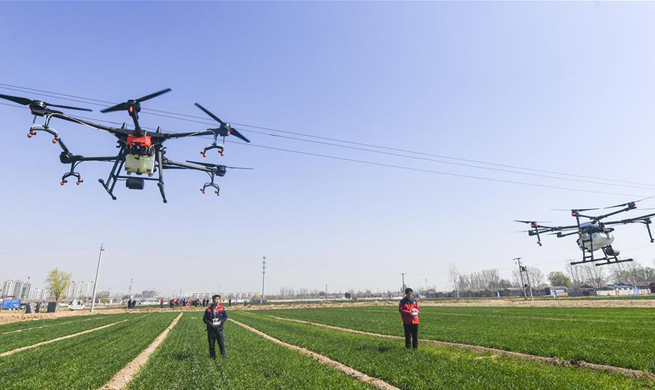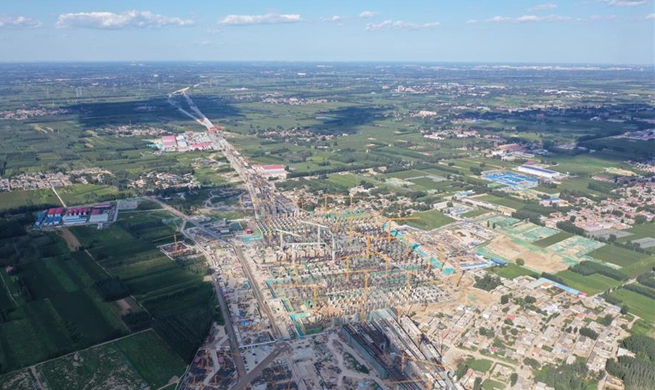SHANGHAI, Sept. 5 (Xinhua) -- China's BeiDou Navigation Satellite System (BDS), a global geolocation network, currently has 39 in-orbit satellites and is expected to be completed in 2020, authorities said Wednesday.
At present, the BDS, independently constructed and operated by China, has officially provided RNSS (Radio Navigation Satellite System) services worldwide, with a total of 39 in-orbit satellites, after high-density launches of BeiDou-3 since 2017, said Yang Jun, deputy director of China's Satellite Navigation System Management Office, at a two-day conference on aerospace technology innovation in Shanghai, which concluded on Thursday.
China plans to send five to seven BDS satellites into space this year and two to four in 2020, which will help fully complete the BDS global network.
Yang said the BDS has always taken innovation and development as the driving forces for its construction, providing steadily improving positioning accuracy and new functions of global short message communication, international rescue and satellite-based augmentation service.
The navigation services based on the BDS are also changing people's lives, by being applied in e-commerce, manufacturing of mobile intelligent terminals and positioning services.
China is promoting its integration into global navigation services, with the BDS compatible with GPS and GLONASS, and by participating in various international organizations such as the International Civil Aviation Organization and the International Maritime Organization.
In the future, the BDS will also be further integrated with the Internet, the Internet of things, 5G and big data, according to Yang.
China began to construct the BDS, named after the Chinese term for the Big Dipper asterism, in the 1990s. The system started serving China with its BDS-1 satellites in 2000 and started serving the Asia-Pacific region with its BDS-2 satellites in 2012.

















